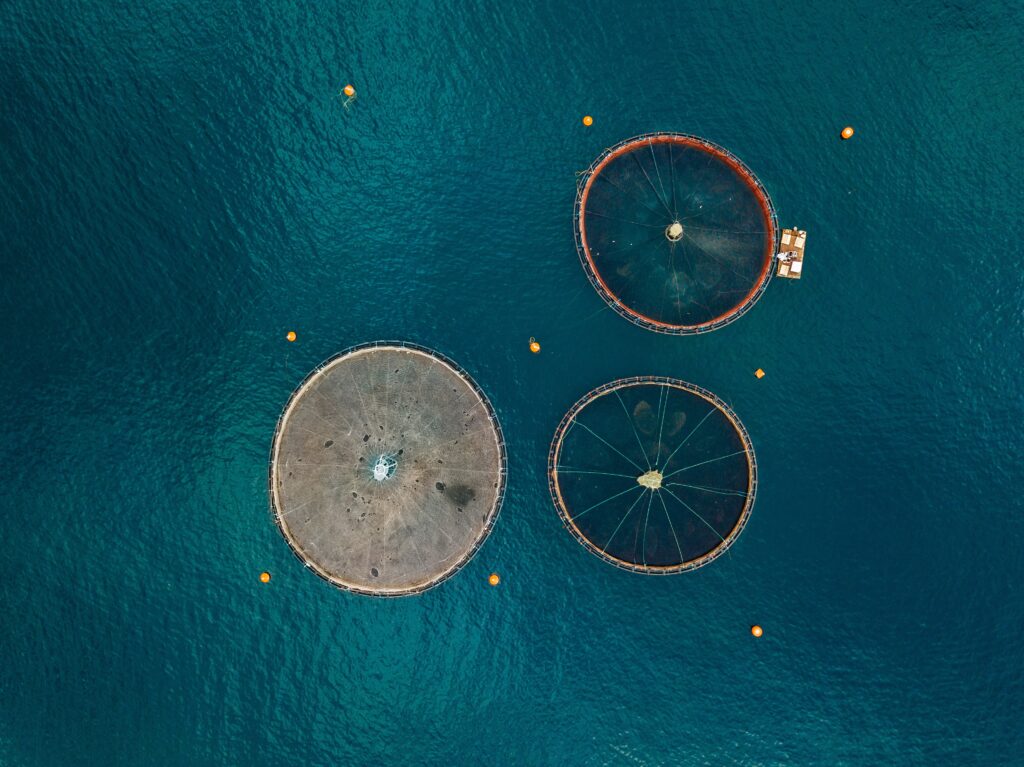
News & Views
Genetics
News
Research
European research group releases genomic selection project results
October 12, 2023 By Hatchery International staff
 Salmon fish farm with floating cages in Greece. Aerial view. (Photo: AQUA-FAANG)
Salmon fish farm with floating cages in Greece. Aerial view. (Photo: AQUA-FAANG) Finfish farming encounters several challenges including the constant threat of infectious diseases and climate change, enabling new pathogens to enter aquaculture systems while posing further issues to fish health and welfare.
To address the challenge, European research group, AQUA-FAANG, conducted a project with selective breeding to ensure fish with the most desirable characteristics are farmed. The H2020 project has generated extensive new functional genomics datasets in the six main finfish species farmed in European aquaculture.
According to the study by Dan Macqueen and Sigbjørn Lien, “Selective breeding using genetic markers linked to traits (genomic selection – GS) is currently widely used to farm fish with favourable characteristics, e.g. disease resistance.”
AQUA-FAANG is a European research consortium established in May 2019 and funded by the European Union with the hopes of generating “genome-wide functional annotation maps for the six commercially most important fish species within European aquaculture,” according to the website.
The consortium is led by Lien and the Norwegian University of Life Sciences (NMBU), as well as 24 research partners from Norway, United Kingdom, France, Spain, Italy, Poland, The Netherlands, Greece, and Germany.
The project results indicated that the present generation of selective breeding is effective when the animals are closely related and less effective when they are distantly related from different populations or across generations.
“AQUA-FAANG datasets add multiple new layers of information on the genetic architecture of farmed fish characteristics, and allow researchers, for the first time, to prioritize genetic variants with increased probability of impacting traits in the target species,” the study states.
The information can be used in building new genetic tools and processes for breeding that have better accuracy without the addition of huge financial costs, reducing the current reliance on measuring important breeding traits in regard to animal welfare.
To display the main results of the project, they created a mystery game structured as a quiz.
Print this page
Advertisement
- IFFO releases fish feed trends analysis for 2023
- Giant stingray found in Cambodia confirmed as world’s largest freshwater fish





